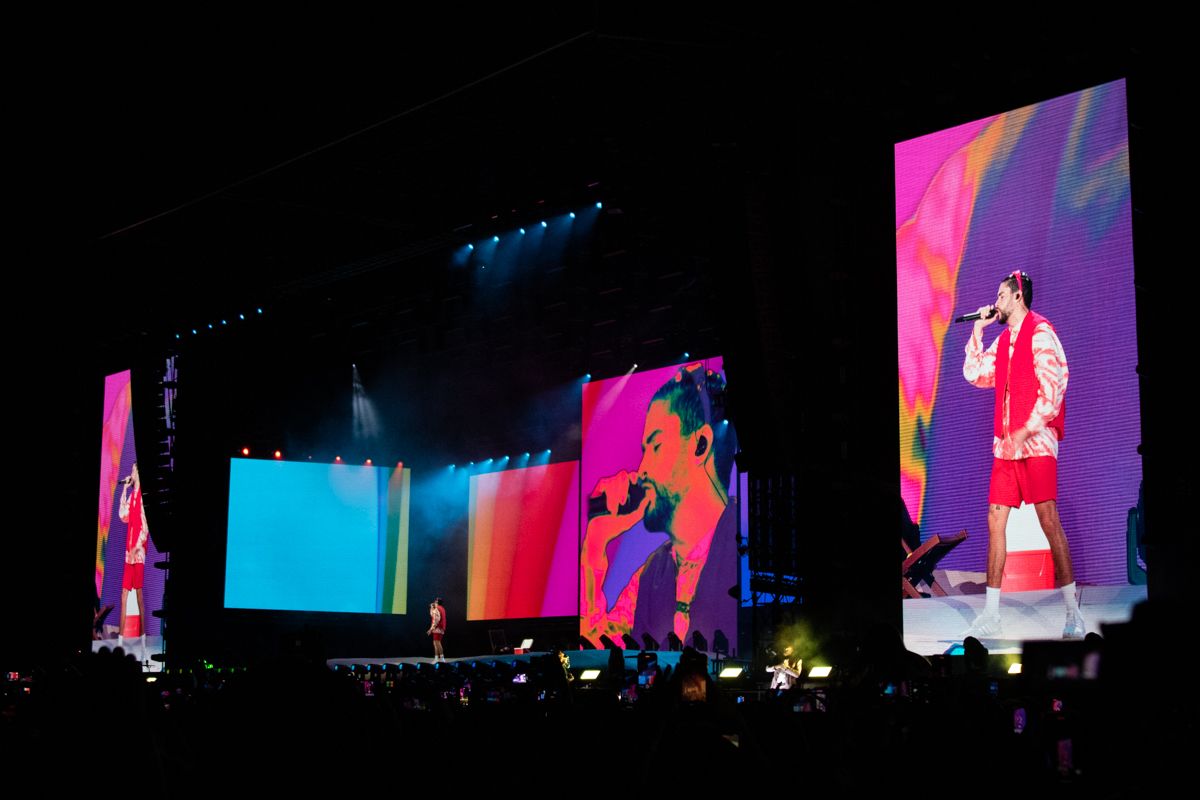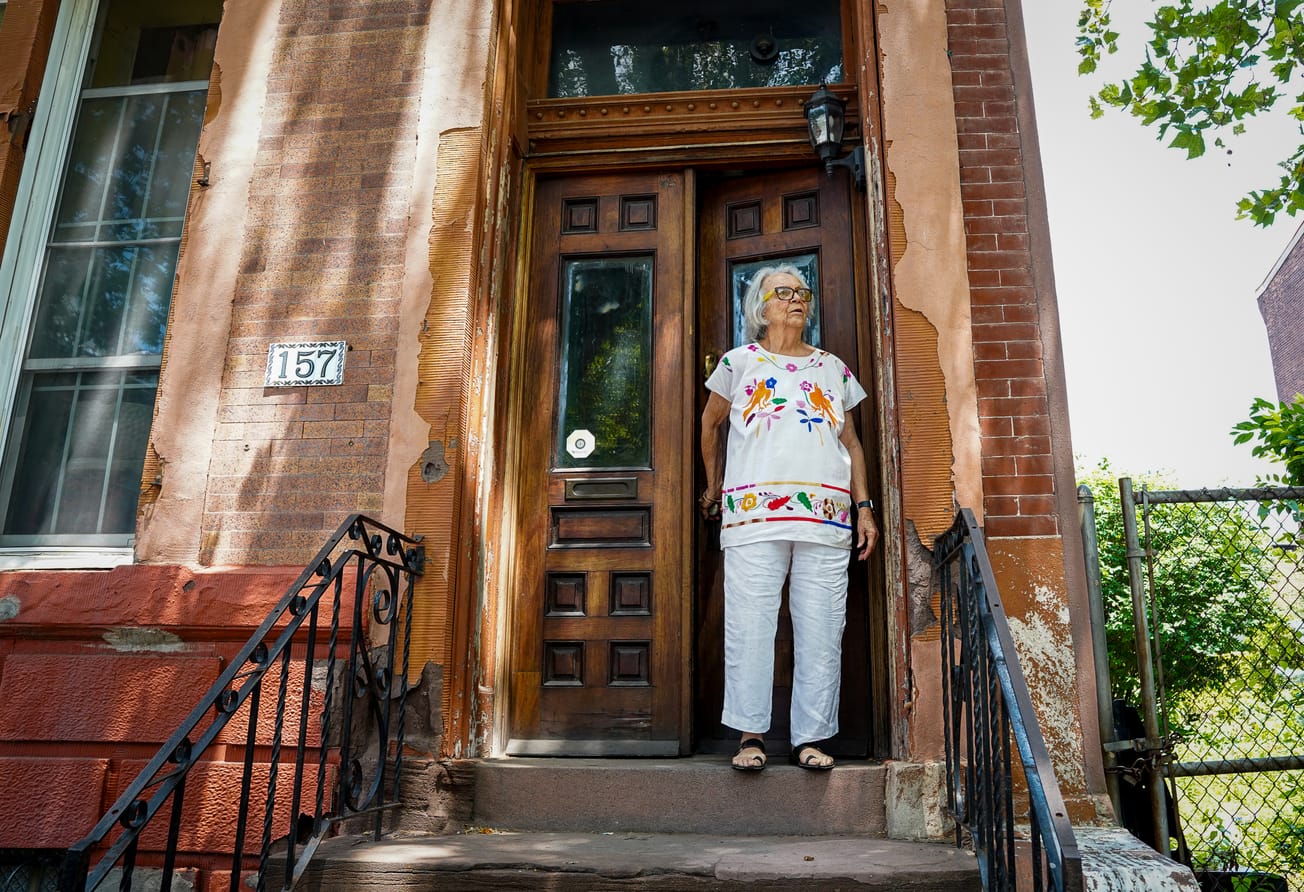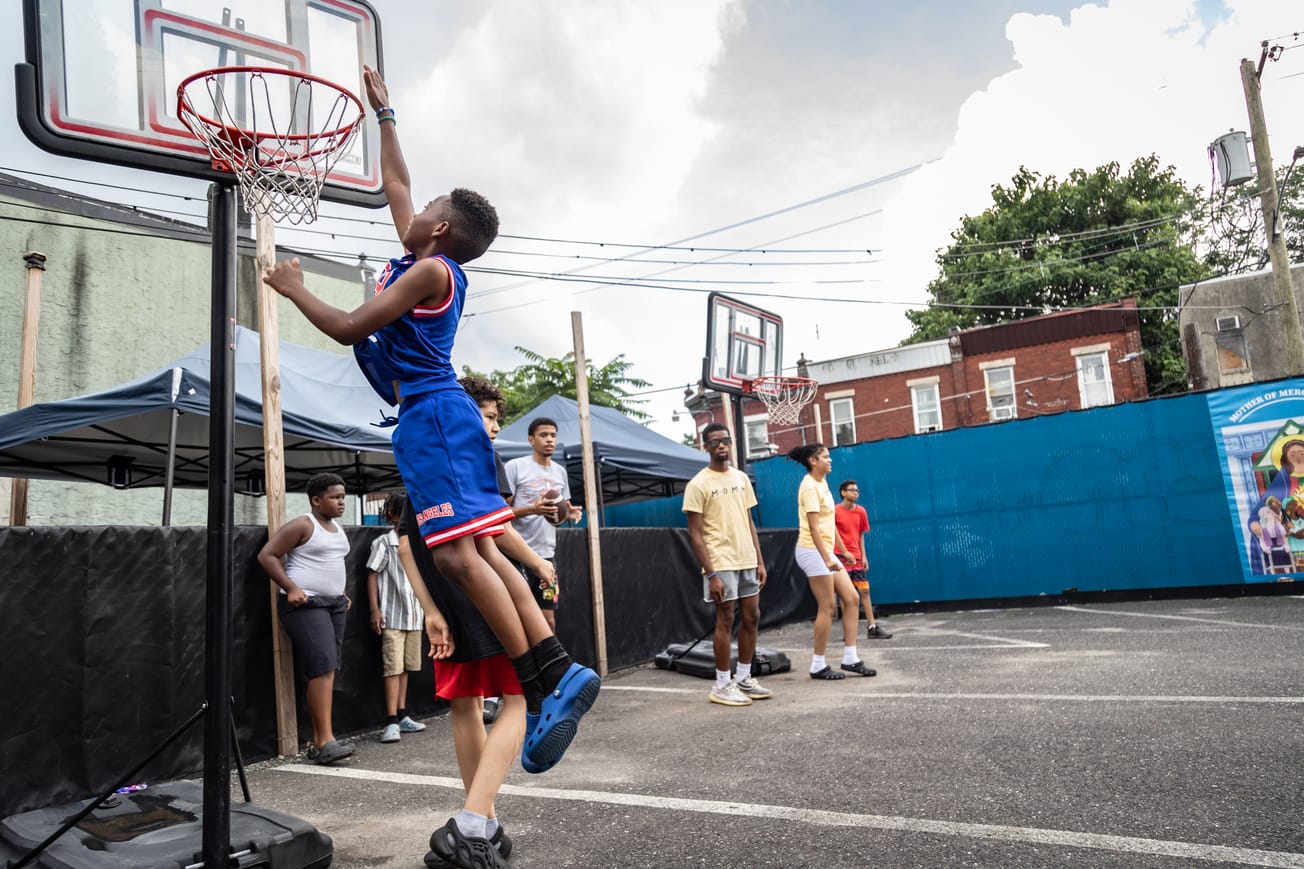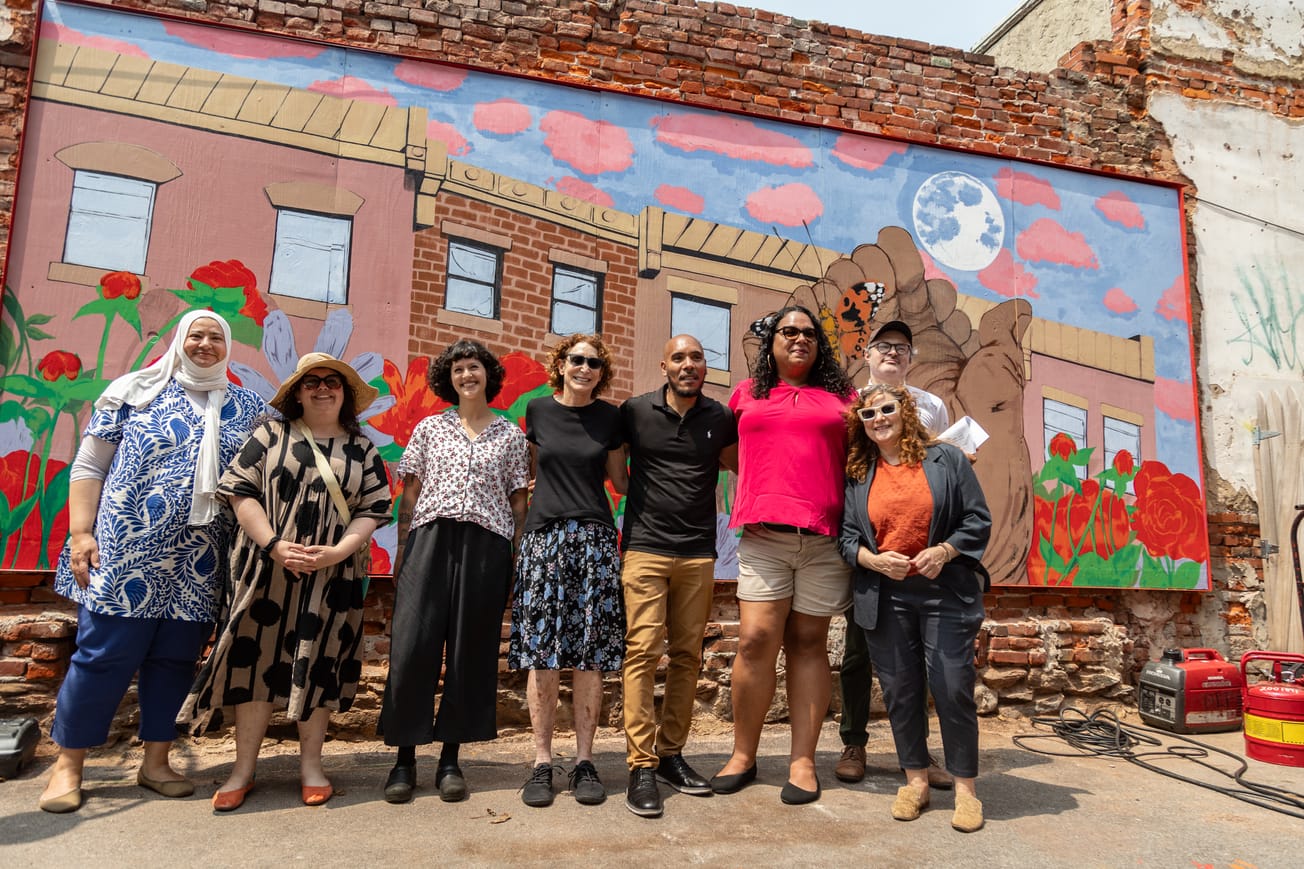It has been a summer of firsts for global Puerto Rican star and reggaetonero Bad Bunny.
Benito Antonio Martínez Ocasio, professionally known as Bad Bunny, was the first Spanish-language artist (and the second Latinx artist) to headline the Made in America Festival on Sept. 4. Cardi B, a Dominican-Trinidadian rapper from the Bronx, was the first Latinx headliner in 2019.
Bad Bunny’s highly-anticipated performance in Philly took place in between the rapper’s “World’s Hottest Tour,” with concerts in the United States and Latin America.
On Aug. 28, Bad Bunny made history by becoming the first non-English-language artist to win VMAs artist of the year. In August, Bad Bunny also made his movie debut in the action comedy film “Bullet Train” alongside well-known actor Brad Pitt.
Rewind to 2016, and Bad Bunny was bagging groceries in a supermarket while attending the University of Puerto Rico at Arecibo before being discovered on SoundCloud. Now he’s a global superstar loved by millions — all while encouraging Latinxs in the U.S. and beyond to embrace themselves and their cultures.
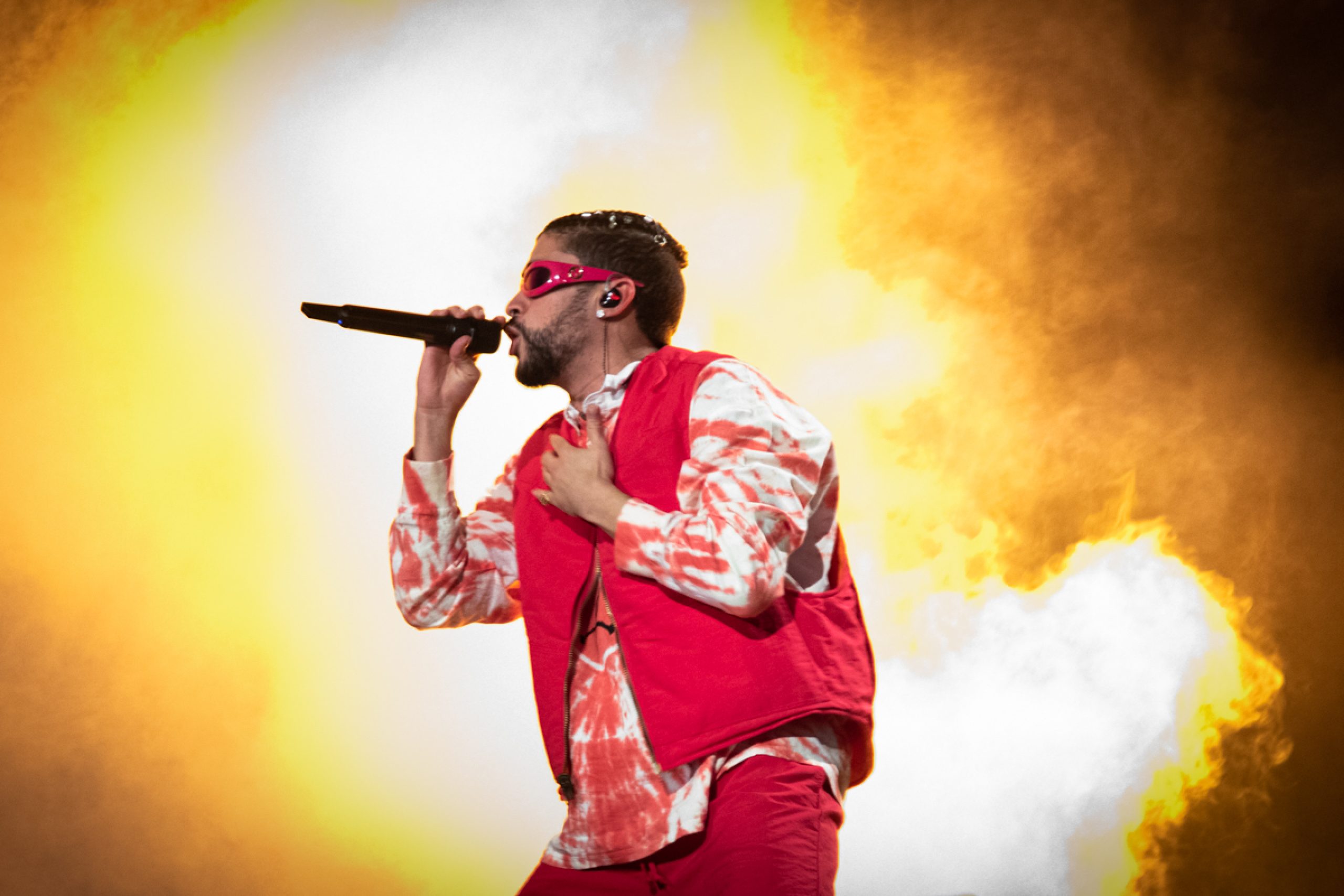
“I always believed from the beginning that I could become great,” Bad Bunny said during his VMAs acceptance speech. “That I could become one of the biggest stars in the world without having to change my culture, my language, my jargon.”
However, the acceptance speech wasn’t the first time Bad Bunny acknowledged the complexities of his success.
During a recent interview with the women’s fashion magazine, Harper’s BAZAAR, Bad Bunny was asked how it feels to be a successful artist in a country that “owns and continuously overlooks” his home island of Puerto Rico.
Bad Bunny’s response: “At the end of the day, my success in the United States I owe to the hardworking Latinos who have helped make the country what it is today.”
Below is Kensington Voice’s coverage of the Made in America Festival on Sept. 3 and 4, including the headliners Tyler, the Creator and Bad Bunny. The festival lineup represented a blend of genres, such as rap, R&B, reggaeton, and more.
Made in America Day 1
On Saturday, well-known artists Jazmine Sullivan, Lil Uzi Vert, Pusha T, and Tyler, the Creator took over the stages located on the Parkway near the Art Museum. The bass from the speakers vibrated through the crowd as people watched their favorite performers.
As the sun went down and the day finally started to cool off, Philly native Lil Uzi Vert came out onto the Liberty Stage. The crowd screamed after he asked if Philly was ready to rage with him. Lil Uzi Vert’s mohawk and energy were unmatched.
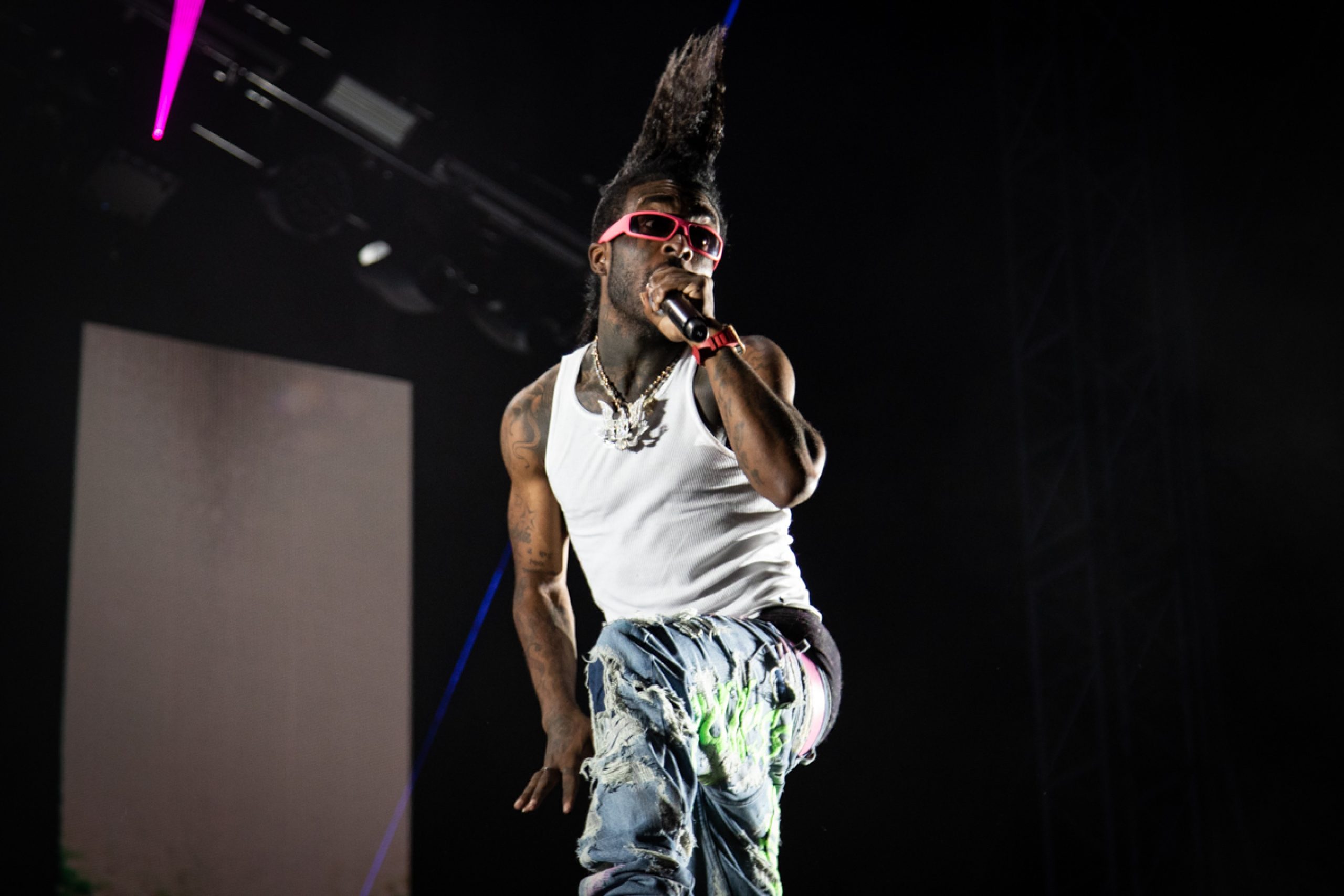
The first day of the festival ended with Tyler, the Creator, a music artist, producer, and fashion designer. The Los Angeles native began his career in 2007.
As the air filled with fog, Tyler, the Creator, who was dressed up as a hiker, slowly climbed up a hill placed on the main Rocky Stage. Suddenly, the bass dropped and the ground shook as the crowd jumped and sang along to “CORSO” from the artist’s 2021 album, “CALL ME IF YOU GET LOST.”
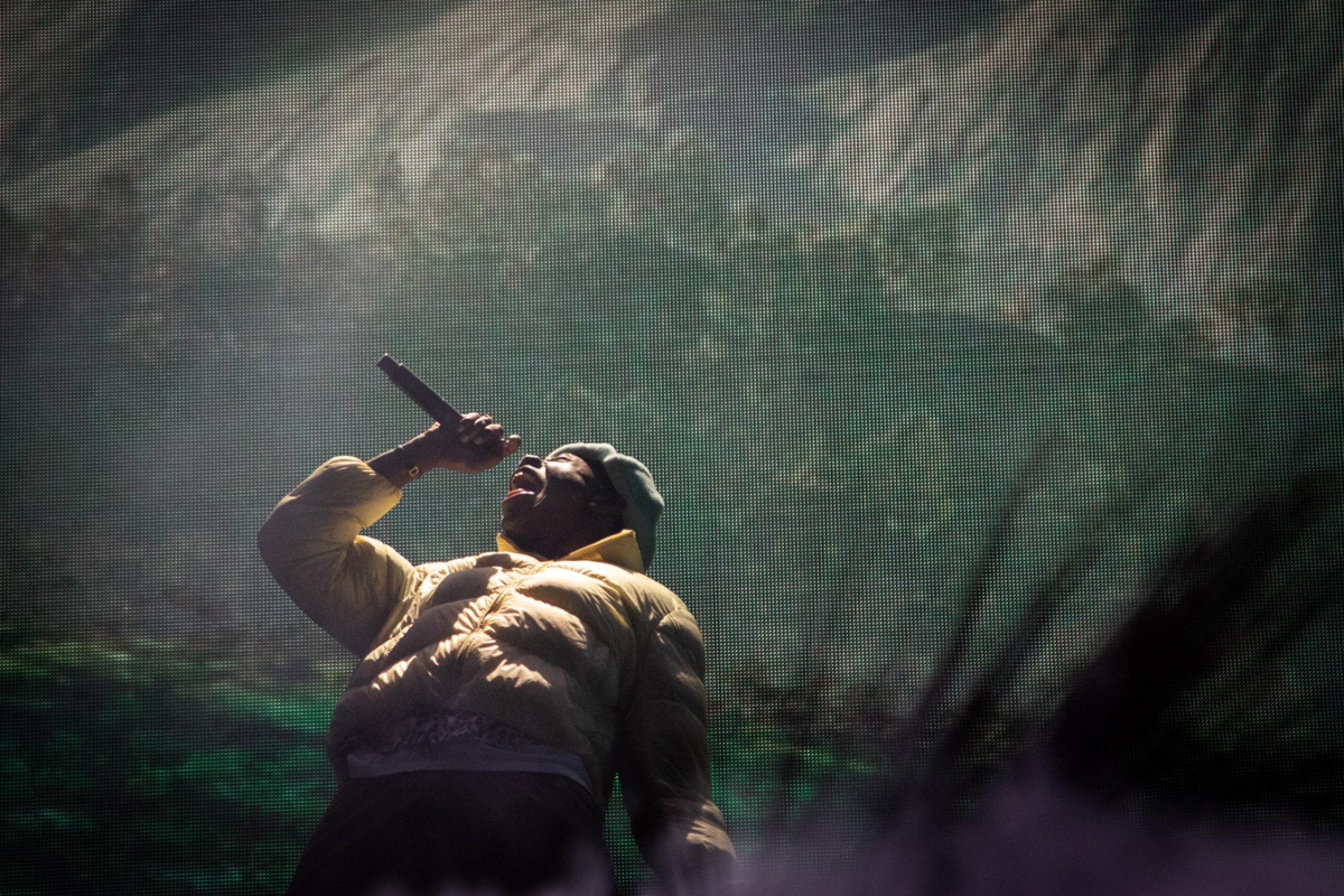
Made in America Day 2
On Sunday, the sun beamed down on the early afternoon crowd gathered around the stages. People were eager to see Dominican dembow rapper Chimbala, Mexican-American band Fuerza Regida, Nigerian singer Burna Boy, and Bad Bunny whose performance closed the two-day festival.
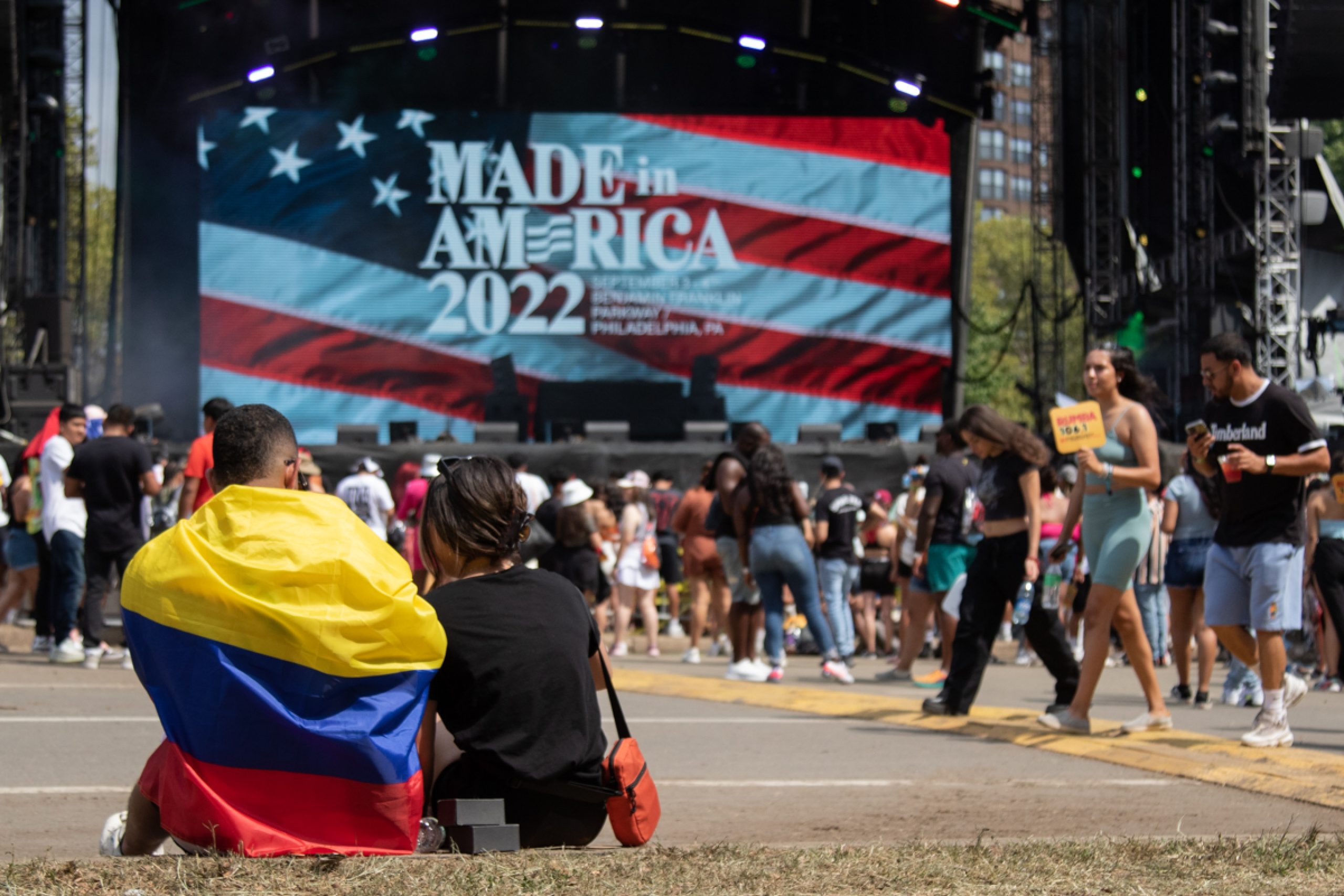
On the Freedom Stage, 5’2, a female rapper from St. Thomas in the U.S. Virgin Islands, warmed up the crowd with the first performance of the day.
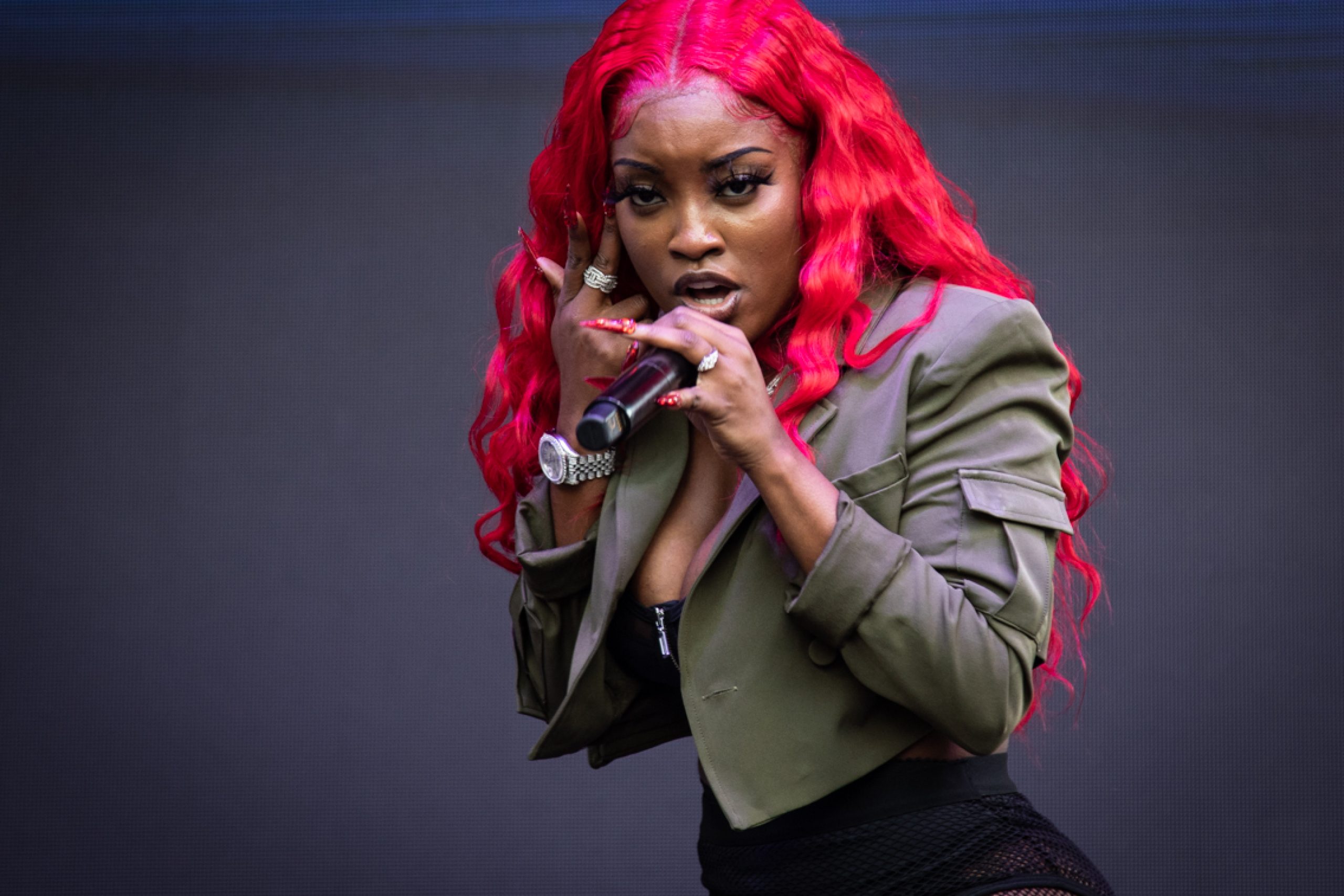
Meanwhile, Enchanted Dancers from the U.S. Virgin Islands festival display danced among the crowd.
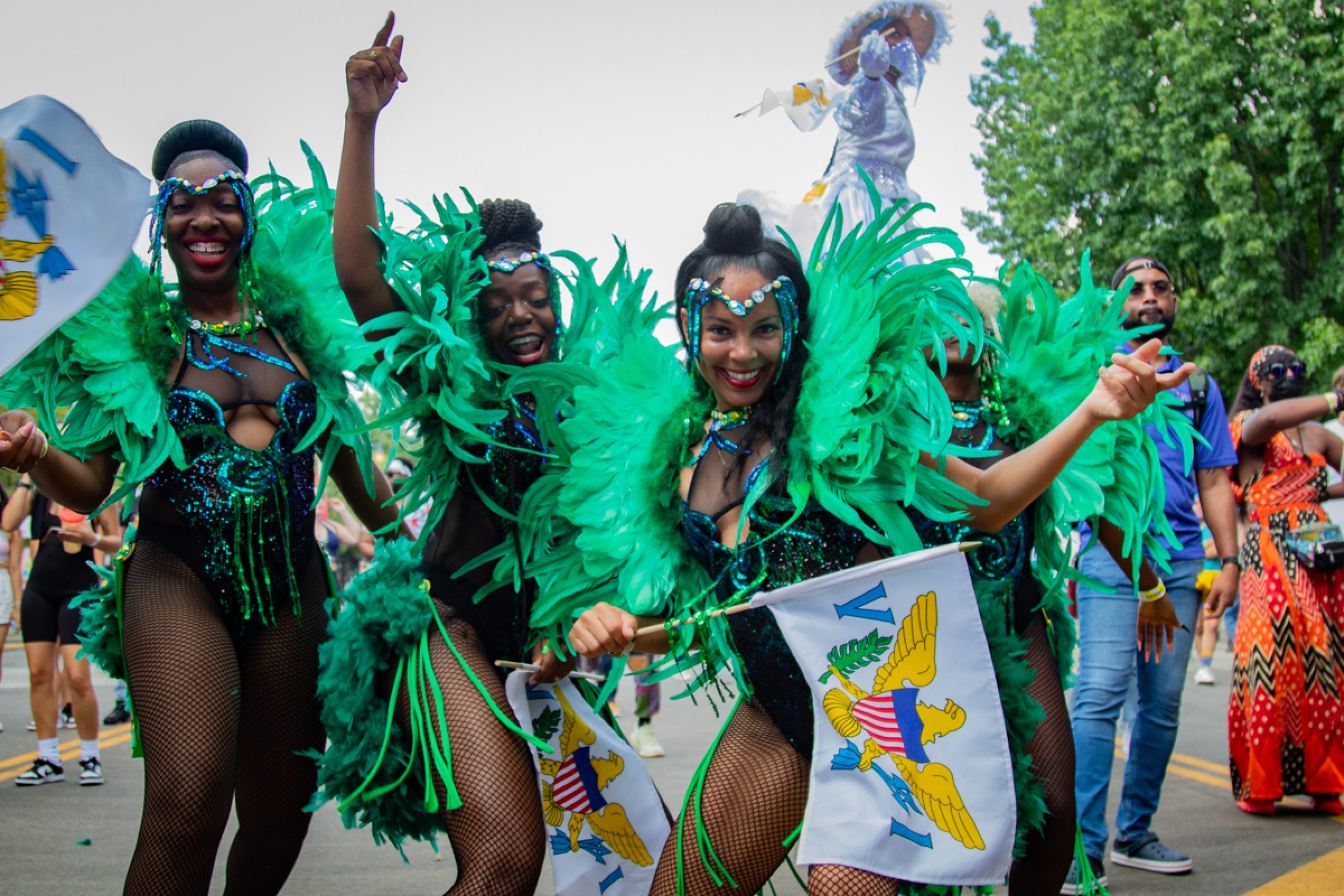
To kick off Sunday’s Latinx celebration, Chimbala performed his hits, like “BOOM” and “Se Me Nota,” on the Liberty Stage. Dembow, a rhythmic music genre from the Dominican Republic, created sound waves in the air as Chimbala’s fans danced.
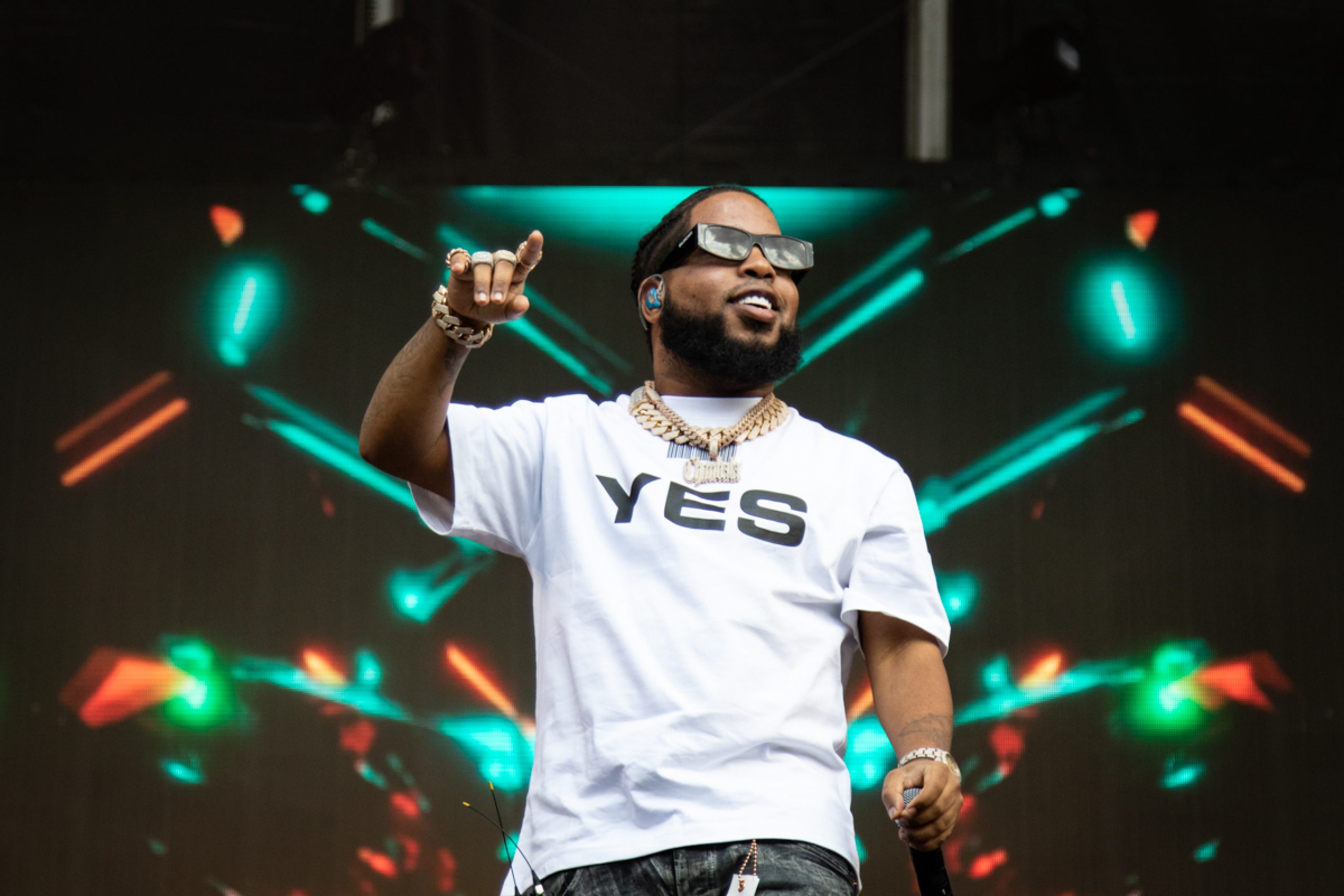
Later in the day, the festival grounds began to fill up with more Latin American flags, Bad Bunny merch, and fan art.
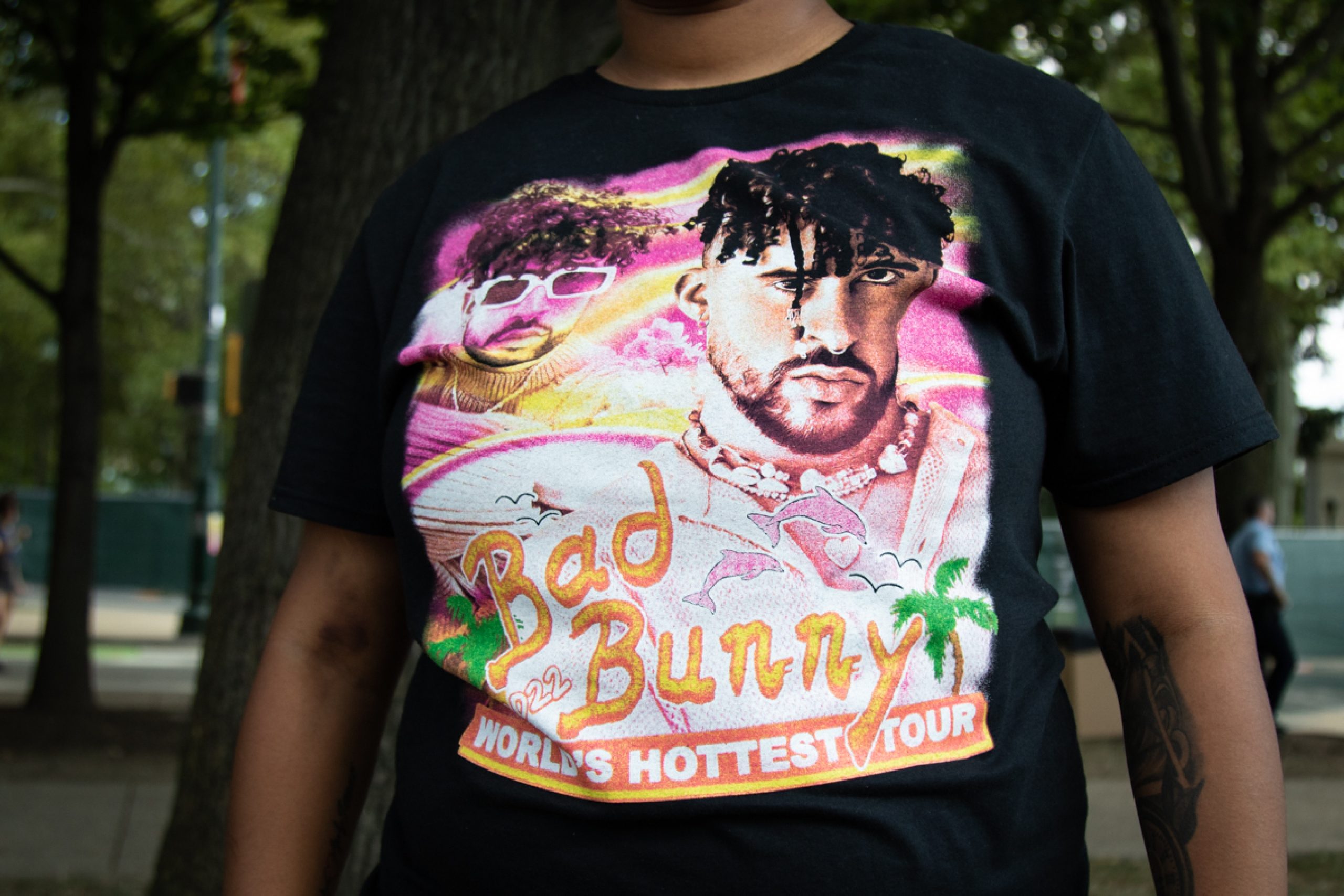
Isabelle Vazquez, a Made in America attendee, proudly walked around the Parkway wearing the Puerto Rican flag.
“People bully [Bad Bunny] and talk about him online, and he doesn’t care about any of that,” Vasquez said. “He’s still showing people that you can make it. He inspires me a lot.”
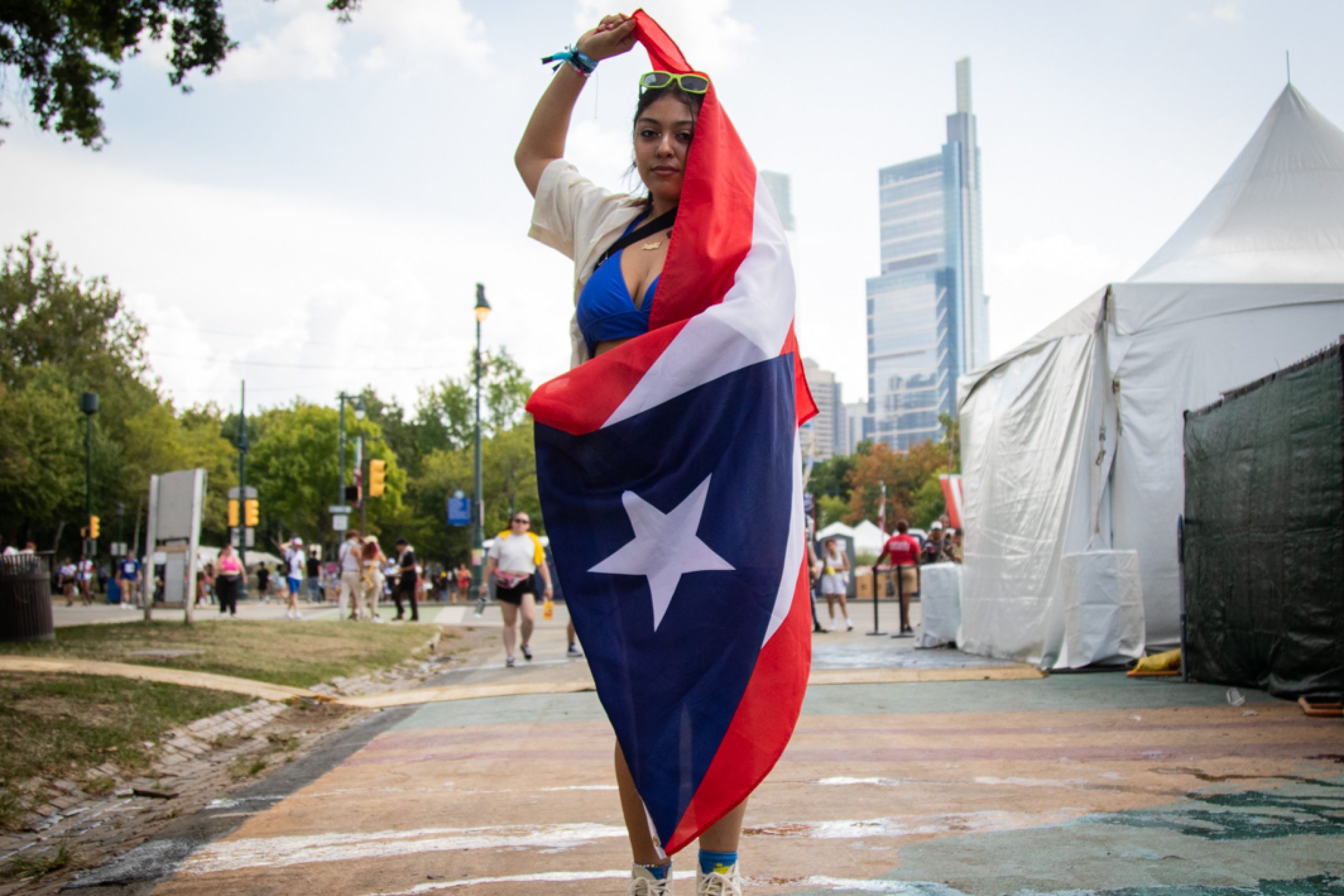
Many fans created original artwork inspired by Bad Bunny. Giselle Moya hand-painted Bad Bunny’s 2022 album, “Un Verano Sin Ti,” on the fanny pack she wore to the festival.
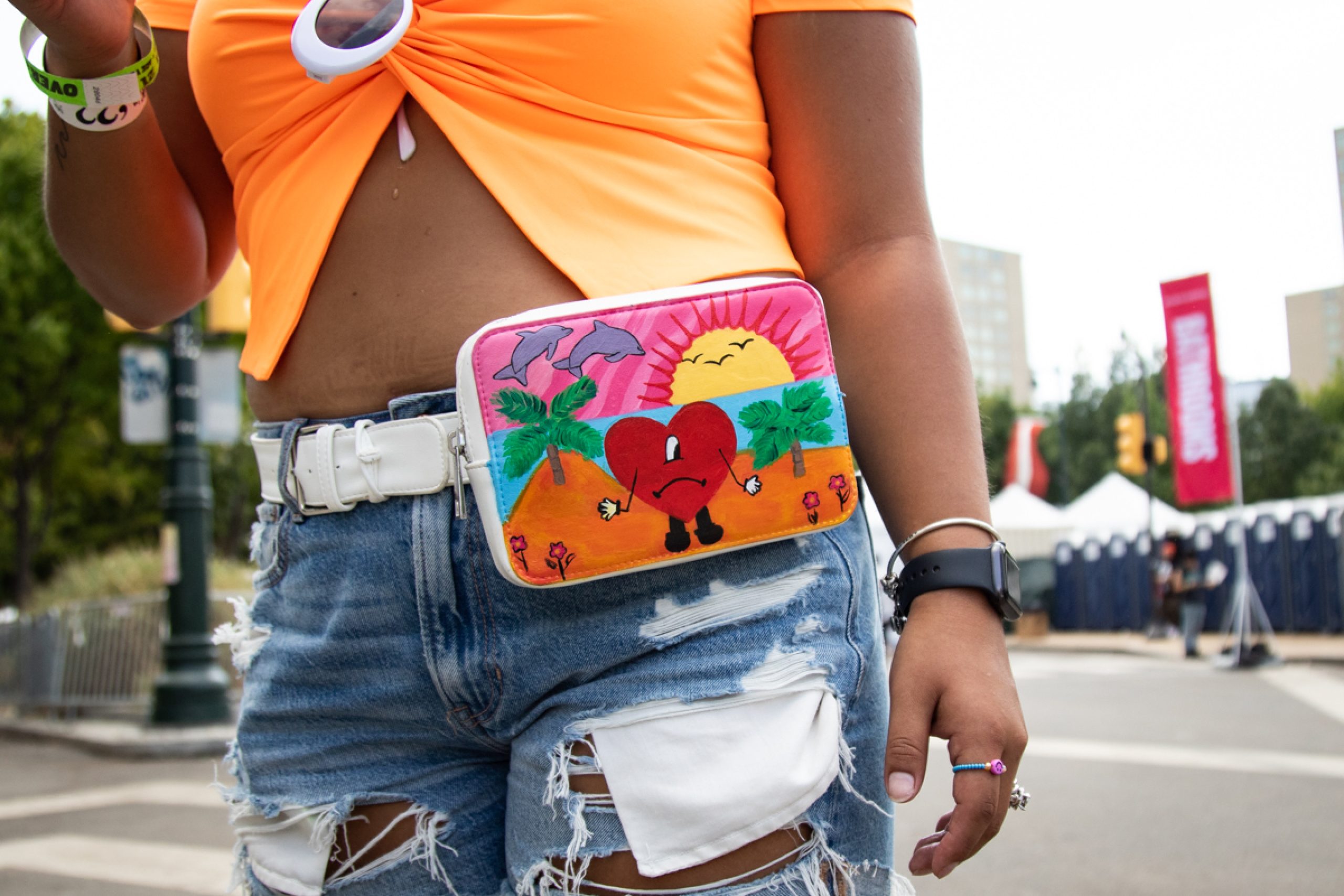
“Being at this festival is bringing a mix of everyone together because you see white, Black, Hispanics; you see literally everyone bumping to his music,” Moya said.
“I love his music, honestly,” Moya added. ”When I’m just down or feel gloomy, his music just pumps me up, and it’s a great feeling.”
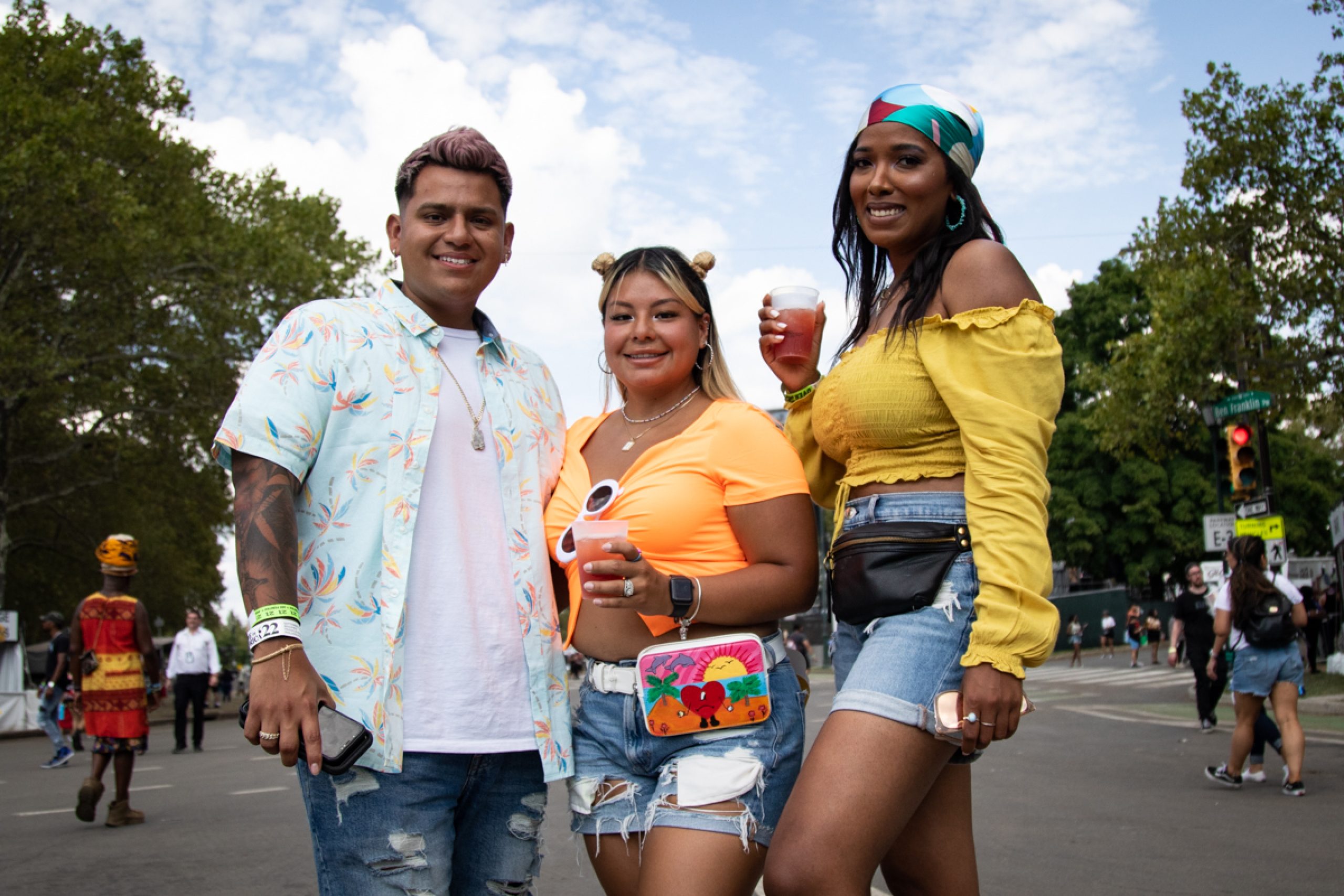
Moya’s companion, Angelee Zapata, was at the festival to see Bad Bunny, too.
“I love that in his latest album he was really influenced by Dominican dembow music, and I’m Dominican,” Zapata said.
She added that Bad Bunny has helped make dembow music, which is hard to resist dancing along to, more known and acceptable.
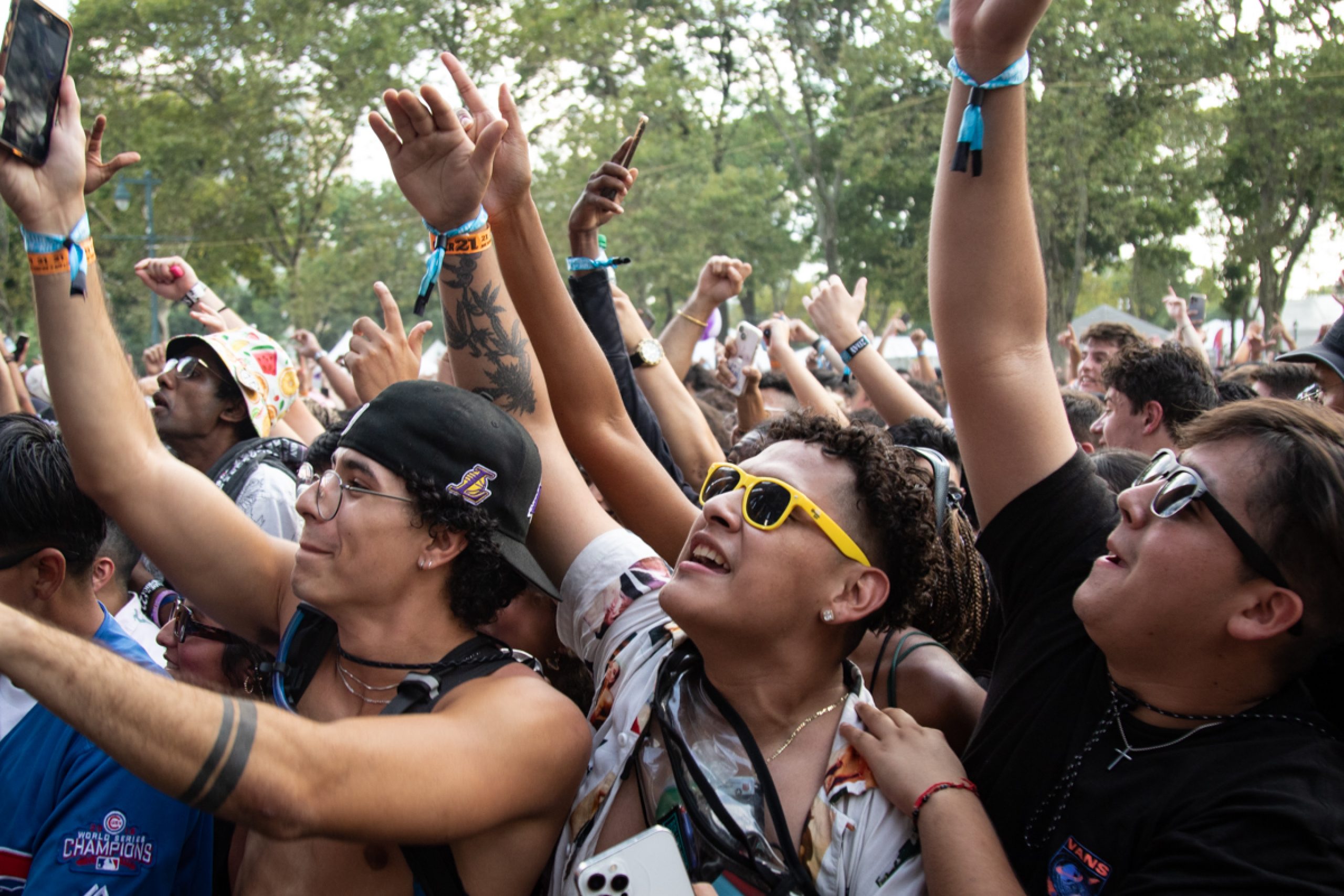
Around 9:30 p.m., it was time for Bad Bunny to take over the main Rocky Stage. Fans chanted, “Benito! Benito! Benito!,” as they waited for him to appear on the beach-themed stage inspired by his latest album.
After a few anxiety-riddled minutes of waiting, the opening notes of “Moscow Mule” began to faintly play in the background. Bad Bunny walked out onto the stage holding a red cooler, wearing a pink outfit, and matching shades. Fans began to scream in anticipation.
Before grabbing the mic, Bad Bunny sat down on a beach chair, sipping from a red cup as if he were back home in Puerto Rico. He took a minute to look out at the screaming crowd and feel Philly’s welcoming embrace.
A few moments later, blue fog began to fill the stage as Bad Bunny stood up and sang the first few lyrics of “Moscow Mule.” Everyone screamed along, “Si yo no te escribo, tu no me escribes,” and the dance party began.
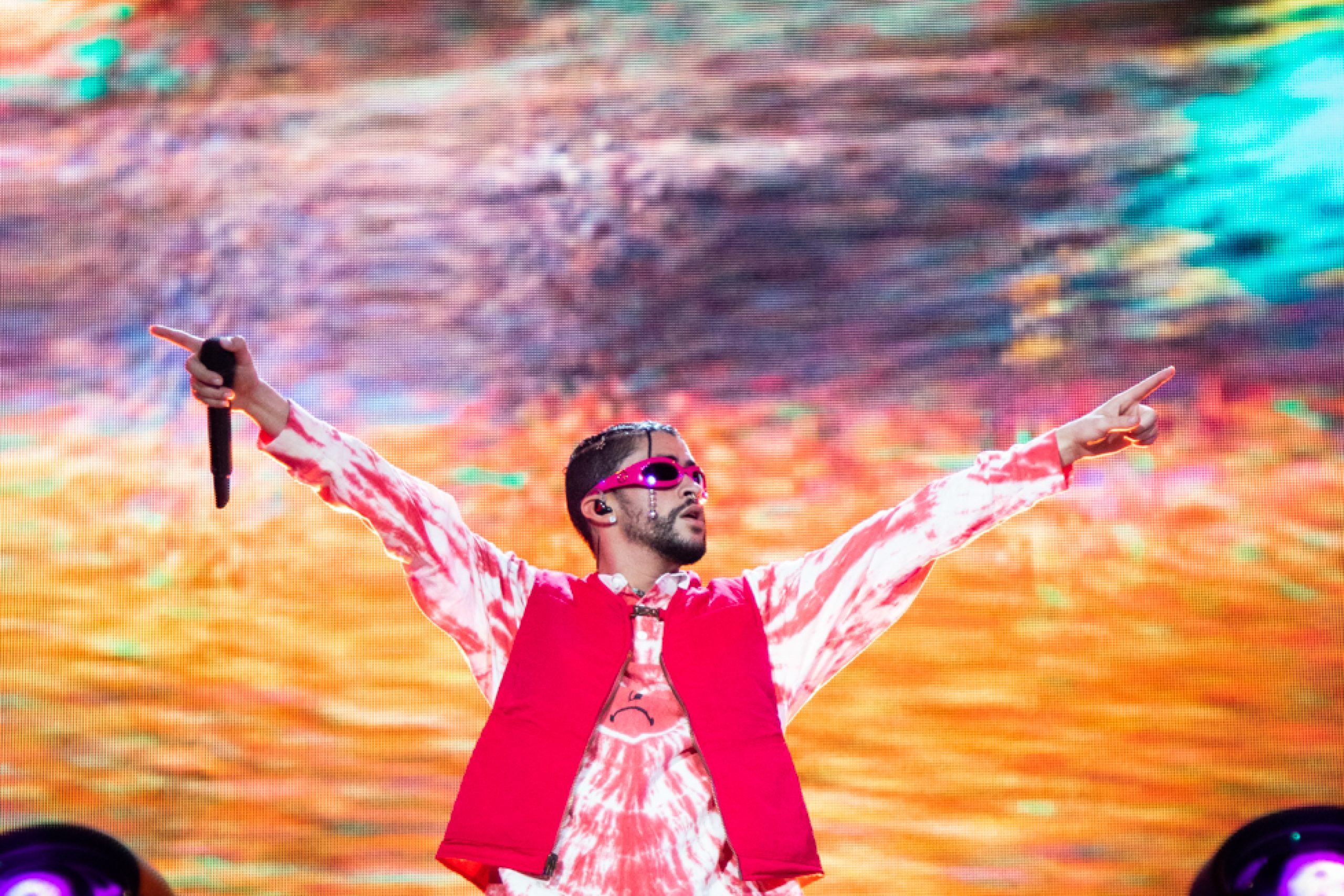
Bad Bunny proceeded to play his newest hits, such as “Me Porto Bonito,” “Efecto,” and “Party.” The set list also included songs from his 2020 album, “YHLQMDLG.” Songs like “Safaera” and “Yo Perreo Sola” helped keep fans in good spirits during the first year of the pandemic.
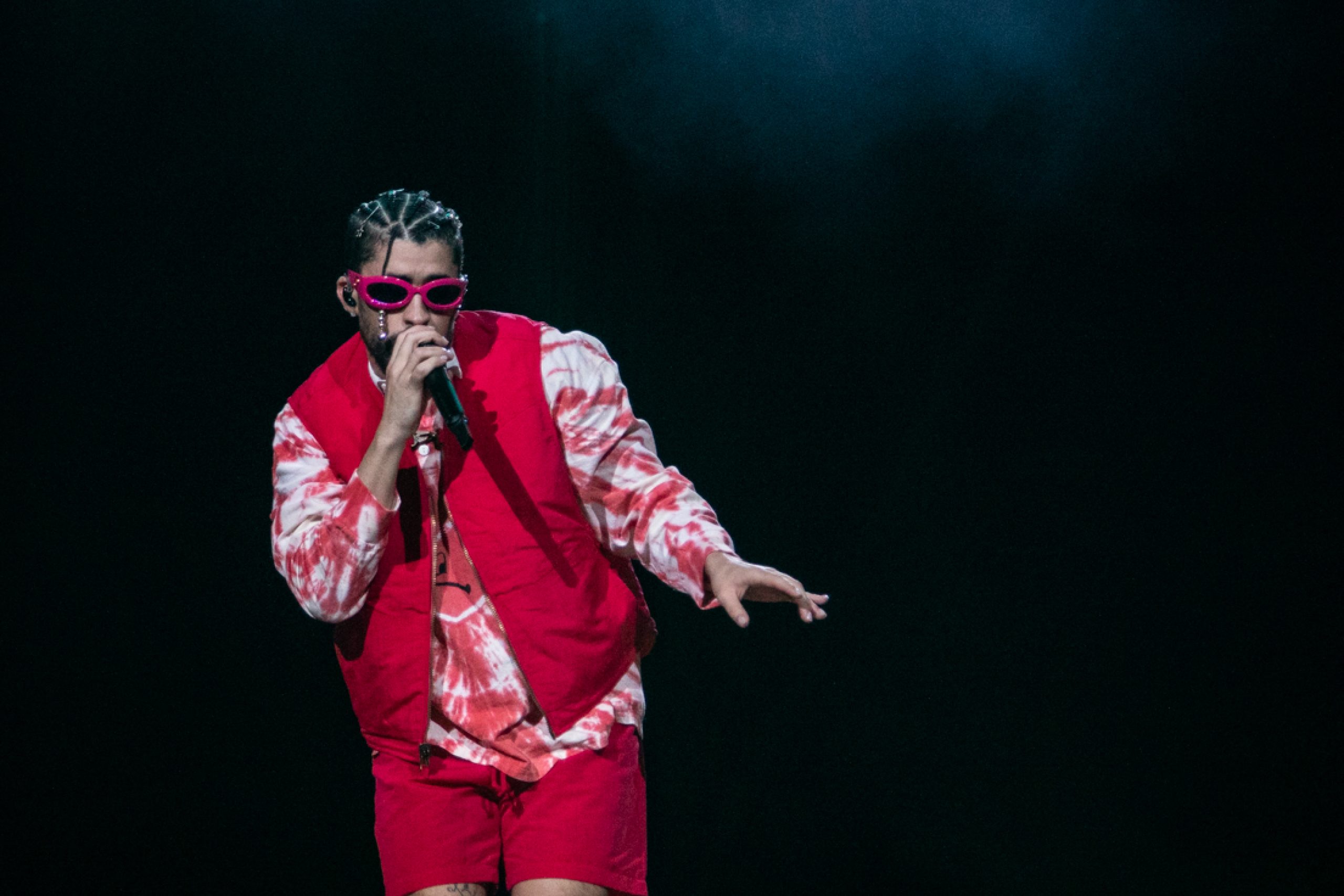
In the middle of his set, Bad Bunny took a few minutes to pay homage to Héctor Lavoe, one of his biggest musical influences. Lavoe was an iconic Puerto Rican salsa singer who increased the popularity of salsa music around the world during the 1960s and 1980s. Bad Bunny’s emotional tribute to the Puerto Rican trailblazer carried a lot of significance in a city with the second largest population of Puerto Ricans in the U.S.
“My name is Benito Antonio Martínez Ocasio from Puerto Rico for the entire world,” said Bad Bunny to the crowd in Spanish.
“Made in America…Latinos make America. It’s important to remember that,” he added in English as he continued to fire up “el perreo” before ending a historic weekend in Philly.
Editors: Zari Tarazona Designer: Solmaira Valerio

